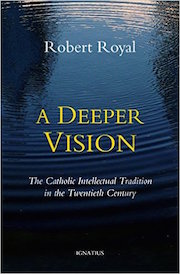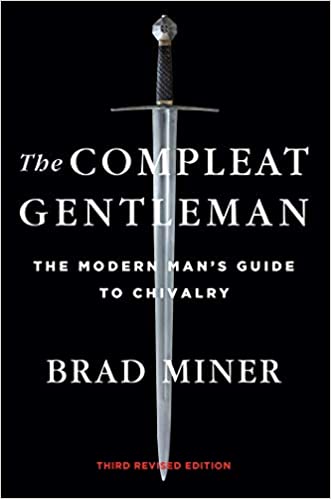Patrick Deneen recently published a thought-provoking article about the Catholic Church in America. Everyone, he says, reads about the clash between liberal and conservative Catholics. But liberal Catholics, like liberal Protestants before them, are destined for the ash heap of history. There’s another split, he says, among conservatives, which will endure – and some would even characterize as a kind of civil war.
One large group takes a mostly positive view of the American experiment. Deneen names the late Fr. Richard John Neuhaus, Michael Novak, George Weigel, Robert George, Hadley Arkes, Peter Lawler, and myself, and the journal First Things.
The other group is more radically critical of the American founding, particularly its individualism and Enlightenment notions of freedom. Alasdair MacIntyre and David Schindler – and Deneen himself – take that view, as do several other Catholics, some associated with the scholarly quarterly Communio.
I count all the persons named as friends (I don’t know Alasdair MacIntyre personally) and have written for both publications (though only once or twice in Communio). So for me, talk of a civil war seems premature. Deneen has stated the large theoretical differences fairly. They’ve long been familiar, anyway, to the ragtag Catholic Talmudists who parse such things. But I’m not convinced he has the practical upshot in proper focus.
I want to state clearly that I admire Patrick Deneen, not least because he practices what he preaches. He left Georgetown last year, partly because the university never supported his work in creating the Tocqueville Forum and a student journal, both fresh air on that ailing Jesuit campus. But he also chose to leave – and move his family to Notre Dame – because of Washington’s schizophrenic life: long commutes and, therefore, separation between home and work.
If a “civil war” is brewing, it will not be so much over political theories as practical choices. Catholics have always had differing views about the secular order. In America ( a Protestant nation shaped by the Enlightenment), Catholics like John Courtney Murray recognized great problems, but enough residual natural law in documents like the Declaration of Independence, to permit us to agree on “articles of peace,” not full concord.
Deneen presents post-World War II America, when Murray wrote, as an anomalous period of peaceful co-existence between Church and state. But he overlooks that even earlier, poor, immigrant, discriminated-against Catholics were able to build dioceses and great churches across the continent, a school system that still educates millions, hospitals and nursing homes, 270+ Catholic colleges and universities – more than the rest of the world combined. Despite profound theological and political differences, our Church was long able to co-exist tolerably well with our state.
That, of course, has changed, but not, I think, because of early modern philosophical liberalism, as Deneen and others argue. American society has changed. Politics, Washington once remarked, is not philosophy. And neither, we might add, is economics. Theorists of both notwithstanding, they’re also not exact sciences.

When Franklin told the woman at Philadelphia that the Convention had created “a republic, if you can keep it,” he expressed a fundamental truth: a political order like ours depends on its people. Principles, philosophies, even constitutional structures, are not enough.
Furthermore, societies and economies have large numbers of moving parts. Today, when so much attention has been devoted to the economic situation, analysts have a hard time describing – let alone guiding – what’s going on. It’s the merest realism to maintain a steady humility about theory and practice in all such matters.
The more radical Catholic critics often stress papal calls to find a more inclusive economic order. Who can disagree? But it’s a lazy point to quote popes that the “profit motive cannot be the sole principle guiding economics.” It’s hard finding anyone who believes that, let alone a system where it actually happens.
In Centesimus Annus, by contrast, John Paul II warned that economics has to be situated “within a strong juridical framework which places it at the service of human freedom in its totality, and which sees it as a particular aspect of that freedom, the core of which is ethical and religious.” (42) But went on to sort through potential pitfalls of too lax and too strict regulation. He wisely concluded: “The Church has no models to present; models that are real and truly effective can only arise within the framework of different historical situations, through the efforts of all those who responsibly confront concrete problems in all their social, economic, political and cultural aspects, as these interact with one another.” (43)
If there are fireworks within Catholic conservatism someday, I suspect they will more likely be over whether Catholics should, or even can, continue to participate in the American order, or – as MacIntyre famously suggested at the end of his book After Virtue – we will have to withdraw, as St. Benedict and his monks did, from the corrupt and collapsing Roman Empire.
Every one of the figures Deneen names on the “pro-American” side appreciates MacIntyre – and not a few Communio’s Hans Urs von Balthasar. Any thinking Catholic should meditate on the deep philosophical critique he’s laid out – which, truth be told, was never entirely absent from the pro-American side anyway – and where our efforts are now best directed.
There’s a growing undercurrent even among “pro-American” Catholics in Washington. People who worked in the White House, served in the military, are making sacrifices for the country both at home and abroad, talk about whether it’s “worth it” anymore. Why? So that HHS can trample on religious liberty or the justice system can impose gay marriage?
My sense is that a day is coming, and may already be here, when practitioners of the deeper critique and of the practical efforts to preserve what can be preserved are going to find themselves co-combatants in a long, common struggle. I think of Eliot’s Choruses from the Rock:
we are encompassed with snakes and dogs: therefore some must labour, and
others must hold the spears.















